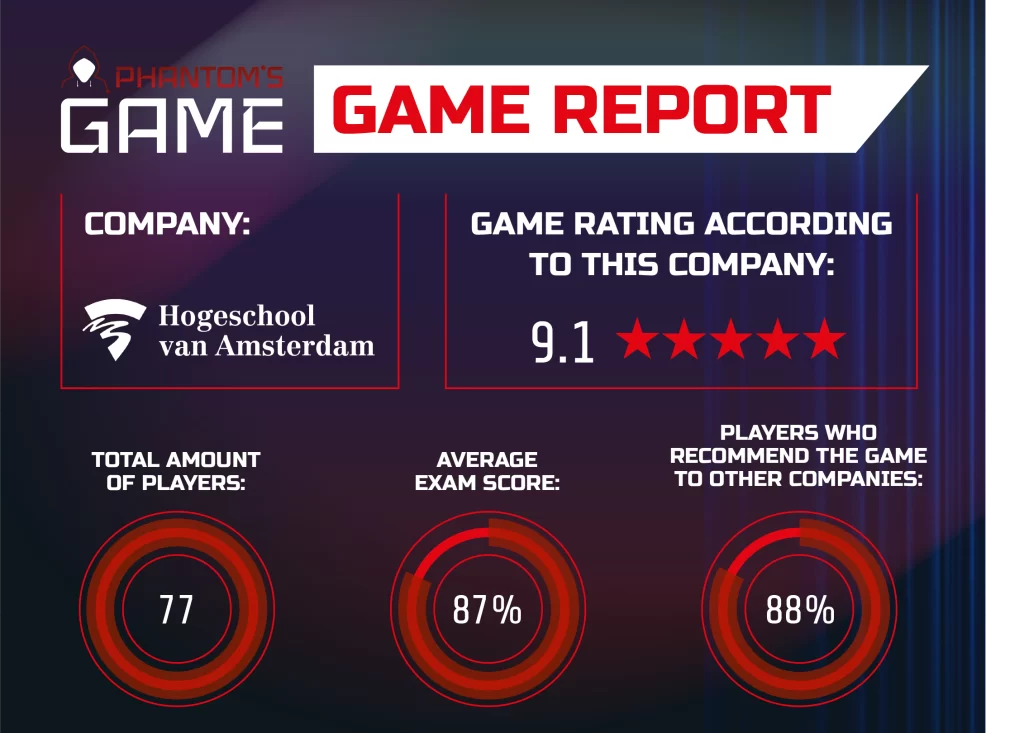Amsterdam University of Applied Sciences
Empowering cybersecurity awareness across the education sector.
Empowering cybersecurity awareness across the education sector.

Creating meaningful learning for students who believe they already know it all. Within our focused cybersecurity program, many students arrived confident in their knowledge. We wanted to challenge that confidence constructively, showing them how theory differs from practice and how vulnerable even informed users can be. The solution couldn’t feel like traditional education – it had to engage skeptical minds while delivering genuine learning outcomes that would stick long after the session ended.
Over 75 students stepped into the role of digital hackers, experiencing cybersecurity from the attacker’s perspective. The response was immediate and enthusiastic: “Awesome!”, “Super cool!”, and “I felt like a real hacker.” What surprised us most was how the game captivated even our typically disengaged students. The visual design, realistic scenarios, and challenging gameplay created an intensity rarely seen in classroom settings.
Students actively collaborated, debated tactics, and pushed themselves to understand complex attack patterns. Abstract concepts like social engineering and security vulnerabilities suddenly became concrete, personal, and urgent. The competitive element added energy while the realistic scenarios forced them to confront their own assumptions about digital security.
The impact was immediate and lasting. Students gained genuinely new perspectives, particularly around the human element in cybersecurity: how manipulation works, how pressure affects decision making, and how attacks are actually structured. The game’s effectiveness led to its permanent integration into our curriculum, now played annually by new student cohorts. It has become an essential component of our program, bridging the gap between knowing about cybersecurity and truly understanding it.

Transform cybersecurity from policy into practice. Our interactive game creates real behavioral change, boosts your existing programs, and turns every student into an active defender.
Our cybersecurity approach is built for education. Staff learn through experience, and students join in for free. Are you ready for the new generation of cybersecurity awareness?